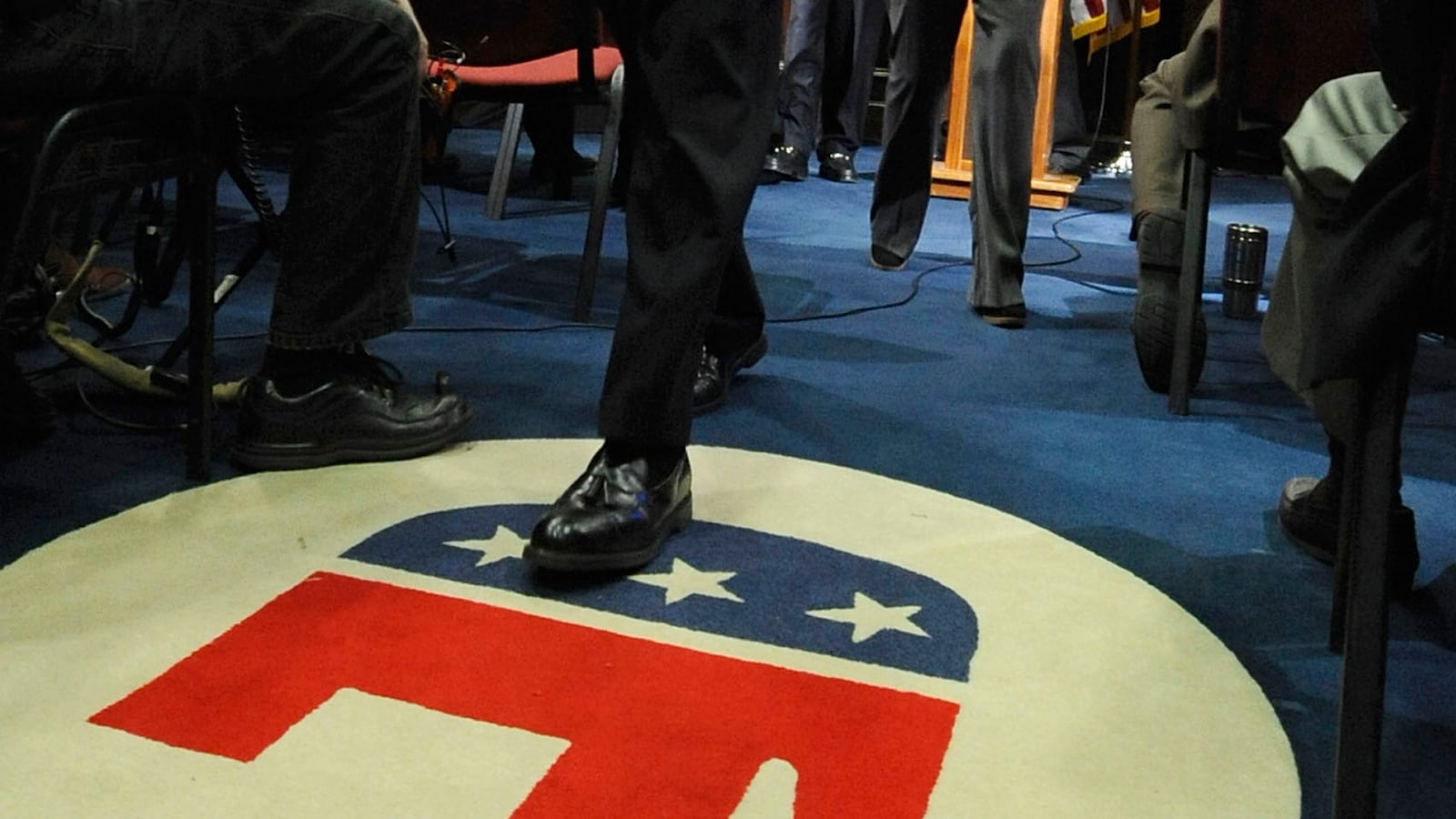Most Republicans agree that the party needs a bigger tent. Earlier this year, the Republican National Committee released a whole report to that effect, and individual Republican lawmakers can’t stop talking about how their party is open to everyone. “We need to say we’re the party of the big tent,” said Texas Senator John Cornyn during an election event last month, to use one example.

It’s great that the GOP wants to be inclusive. The problem comes when it’s time to do something about it. Not only has the party rejected efforts to appeal to non-traditional voters—like Latinos—but it’s members and spokespeople continue to create the impression that the party is out-of-touch with everyone but a small (and shrinking) slice of the country.
On Wednesday, for instance, Politico revealed that Virginia Rep. Randy Forbes—a senior member of the Republican caucus—has waged a lengthy crusade to convince his colleagues and the National Republican Congressional Committee brass they shouldn’t back some gay candidates. Forbes doesn’t say why he has a problem with supporting gay Republicans, but he did tell Politico that he was “concerned” about members being asked to donate to their campaigns. Forbes, it seems, just isn’t comforting with giving his funds to a gay Republican.
Obviously, there are plenty of Republicans who have a problem with this attitude—otherwise, Politico wouldn’t have the story. Still, it’s this kind of thing that reinforces the view that the Republican Party is home to a remarkable amount of intolerance and insensitivity. And it’s not as if Forbes was alone in his willingness to alienate the broad public. That same day, Orlando Watson, a spokesperson for the Republican National Committee and communications director for black outreach, took aim at President Obama’s record in helping the African American community.
“What I don’t find defensible is, after five years of, you know, living under President Obama, you know, he has little to show for what he’s done for the black community,” Watson said, in a segment with MSNBC’s Thomas Roberts. “So while we’re focused on, you know, trying to create jobs, private-sector jobs, good-paying jobs, career-making jobs, I would ask, you know, what exactly has the president done for the black community?”
As an outreach director, Watson presumably has ties to activists, leaders, and media figures who could tell him what Obama has, and hasn’t, done for the black community (or at least, various black communities). If nothing else, he could look at public opinion polling, which shows wide African American support for the president, as well as policies like the Affordable Care Act. The wrong approach, however, is to dismiss Obama’s relationship with African Americans as unfruitful. Not only does it suggest that black people were somehow duped into supporting him, but it’s the kind of pointless rhetoric that alienates African Americans.
If these two instances aren’t enough to illustrate that the GOP hasn’t built the “big tent” it wants, there’s also the widely-cited revelation that the party holds seminars to train men on how to speak to women, especially during an election. Prompted by the controversies over Todd Akin in Missouri and Richard Mourdouk in Indiana, the NRCC is trying to keep its members from making similar, disastrous mistakes. But the mere fact that this is necessary highlights the party’s deep challenges.
The simple fact is that the GOP is nowhere close to making gains with any of the constituencies it needs to be a competitive national party. Indeed, it’s even moving forward with ideas that could alienate its existing supporters. In addition to opposing the president’s plan for a minimum wage hike and a Democratic push for new unemployment benefits—policies which would assist Republican voters and constituents—some GOP lawmakers have voiced their opposition to the idea of a minimum wage. “I think it’s outlived its usefulness,” said Texas Rep. Joe Barton, as quoted by National Journal. “It may have been of some value back in the Great Depression. I would vote to repeal the minimum wage.”
Republicans are free to alienate low income workers—it’s their prerogative—but as far as broadening the party’s appeal, I don’t think it will help.





